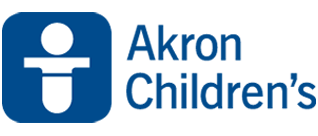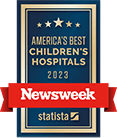 By the time teens reach their senior year, nearly 70% of high schoolers will have tried alcohol, half will have taken an illegal drug and more than 20% will have used a prescription drug inappropriately, according to the National Institute on Drug Abuse.
By the time teens reach their senior year, nearly 70% of high schoolers will have tried alcohol, half will have taken an illegal drug and more than 20% will have used a prescription drug inappropriately, according to the National Institute on Drug Abuse.
Adolescents are “biologically wired” to take risks, seek large rewards and carve out their identity, which can leave them susceptible to substance use. But because the brain does not fully develop until about age 25, repeat exposure to substances can leave the brain vulnerable to potential permanent changes.
Addiction is a brain disease because addictive substances trigger the release of chemicals (neurotransmitters), which alter the brain’s structure and how it works. These changes in the brain may be long lasting and can lead to harmful and self-destructive behaviors, causing serious damage to families, relationships, schools and workplaces.
Dr. William Goldman, medical director of Akron Children’s Addiction Services Program, sheds light on addiction, signs of substance use and how to help a teen engaging in high-risk behaviors.
What are risk factors for addiction?
Anyone can become addicted to alcohol or drugs. However, certain conditions and circumstances make some kids more vulnerable to addiction than others, including:
- Genetics or a family history of addiction
- Mental health concerns or low self-esteem
- Behavioral or impulse-control problems
- Exposure to trauma, such as witnessing violence or abuse
- Peer or societal norms, exposure to advertising encouraging substance use or easy access to drugs or alcohol
- Age of first use, early exposure to substance use increases the rate of addiction

If a child starts to behave differently for no apparent reason, it could be a sign of alcohol or drug use.
What are signs of addiction?
If a child starts to behave differently for no apparent reason, it could be a sign of alcohol or drug use. Typical signs of addiction, include:
- Changes in eating or sleeping patterns, or sudden weight gain or loss
- Worsening depression and anxiety over time
- School problems, such as academic decline, skipping school or recent discipline problems
- Loss of interest in favorite activities or hobbies
- Frequent arguments, sudden mood changes, secretiveness and lying
- The loss of previously healthy peer groups that get replaced with questionable ones
- Alcohol, smoke or other chemical odors on a child’s or their friends’ breath or clothing, red eyes or frequent “sick days”
How can parents help prevent addiction?
While there is no roadmap to prevent substance abuse in teens, fostering a child’s coping skills, mental health and relationships can all serve to minimize the risk.
Parents are the most influential individuals in a child’s life. An open, honest and trusting relationship is essential to helping children avoid substance abuse. The key is to talk early, often and never stop.
The National Institute on Drug Abuse has excellent resources for parents to prepare for these conversations. In addition, follow these tips to encourage a conversation without lecturing:
- Ask open-ended questions and listen without interruption
- Watch your tone of voice and body language
- Show respect for your child’s point of view
- If you have a family history of substance abuse, be honest about it
- Focus on teaching your child on what “to do,” instead of what “not to do”
Adolescents can be strongly influenced by their peers so involvement in prevention efforts at school such as DARE or Not Me I’m Drug Free can be helpful. In addition, a yearly physical with a trusted provider, perhaps often overlooked in teens, is an important opportunity to discuss substance use and identify any concerns.

Teens can benefit from drug abuse intervention even if they are not what some would consider “addicted.” If you suspect any high-risk behaviors, address it immediately.
How can parents support a child engaging in high-risk behaviors?
If there is suspicion of substance use, address it as soon as possible. Adolescents can benefit from drug abuse intervention even if they are not what some would consider “addicted.” This can include family, group or individual counseling by a licensed professional, or a referral to a provider or center with substance use disorder training.
Parents can and should be prepared to participate with the recovery process. Family-based drug abuse treatment can help improve communication, problem solving and conflict resolution within the household. Remember, it takes a village and engage the community (family, friends, spiritual leaders) to help when concerns arise.
What can parents do if their child becomes an addict or alcoholic?
When addiction takes over, drugs produce physical changes in the brain that are critical for judgment and behavior control, compromising the very parts of the brain that make it possible to “say no.”
That’s why parents of teens with substance use disorders should seek professional help to guide this process.
There are support systems, such as local Al-Anon groups, that exist to help parents and family members who struggle with a loved one’s substance use. Websites like findtreatment.gov can assist with finding local agencies for your loved one or call 1-800-662-HELP (4357).
Always remember that substance use disorders thrive in silence. Parents can speak with their physician, spiritual leaders, counselor, family members, friends or other trusted sources to seek guidance. It is most important for parents to realize that they are not alone in their struggles.
If you are struggling with a child engaging in high-risk behaviors, contact Akron Children’s Addiction Services Program at 330-543-5015. Telehealth appointments are available.
Learn more about Akron Children’s COVID-19 response and resources, and ways to prevent the spread.








